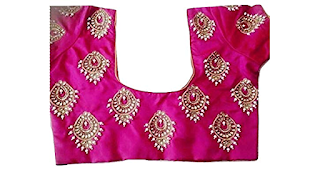The Ultimate Beginner's Guide to Fashion Designing Courses
Types of Fashion Designing Courses:
1. Certificate/Diploma Courses: These are short-term programs that provide a basic understanding of fashion design principles and techniques.
2. Bachelor's Degree in Fashion Design: A comprehensive undergraduate program that offers in-depth knowledge of fashion design and related subjects.
3. Master's Degree in Fashion Design: An advanced program for those who wish to specialize further in specific areas of fashion design.
4. Online Fashion Design Courses: Many institutions offer online courses that allow individuals to learn at their own pace and from anywhere in the world.
5. Short-term Workshops and Specialized Courses: These can focus on specific skills or aspects of fashion design, such as pattern-making, draping, accessory design, or sustainable fashion.
What to Expect from Fashion Designing Courses:
- Creative Skill Development: Courses focus on nurturing creativity and artistic abilities to come up with unique and innovative designs.
- Technical Knowledge: Students learn about fabric types, garment construction techniques, pattern drafting, and other technical aspects of fashion design.
- Fashion Illustration: Courses often include teaching fashion sketching and illustration, as it is a crucial communication tool for designers.
- Fashion History: Understanding the evolution of fashion trends helps students draw inspiration and context for their designs.
- Portfolio Building: Most programs emphasize the creation of a professional portfolio to showcase the student's work and progress.
- Industry Exposure: Some courses provide opportunities for internships or industry collaborations to gain practical experience.
Where to Study Fashion Designing Courses:
Fashion design courses are offered by various institutions, including:
- Fashion design schools and colleges
- Universities and institutes with fashion design departments
- Online platforms offering fashion design programs
It's essential to research and choose a reputable institution that aligns with your specific interests and goals within the fashion industry. Additionally, consider factors such as course curriculum, faculty expertise, alumni success, and any additional support or facilities provided by the institution.



Comments
Post a Comment